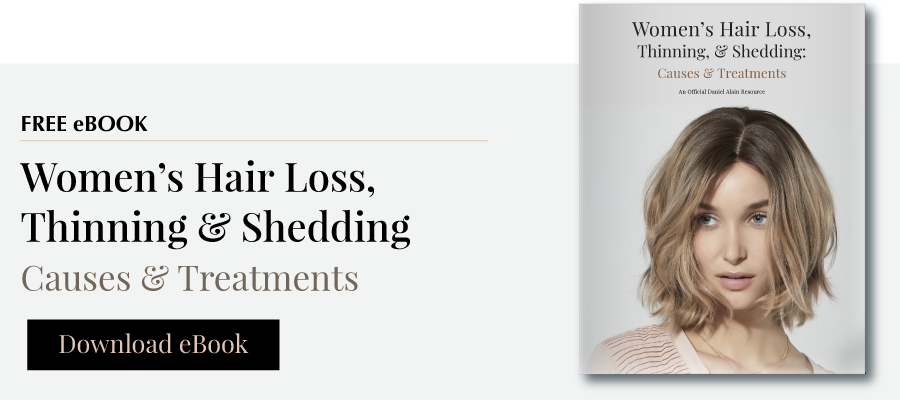The Challenges of Living With Alopecia and 4 Coping Strategies
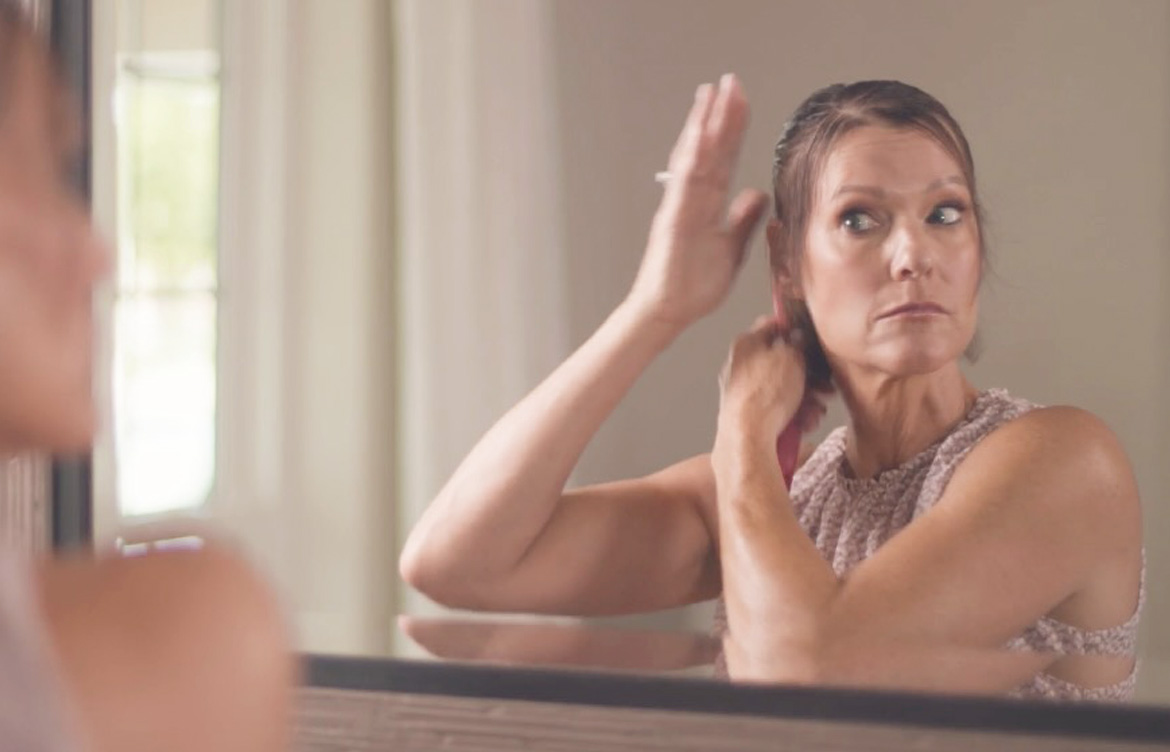
If you or someone you love is dealing with the effects of alopecia, you’re likely no stranger to the emotional turmoil and practical challenges it brings. Alopecia, whether genetic, hereditary, or caused by an autoimmune disease, can leave you feeling isolated. This article is here to provide you with insights and tips for coping with both the physical and emotional challenges caused by hair loss associated with alopecia.
At Daniel Alain, we understand the unique struggles faced by those dealing with alopecia. With over two decades of creating the finest human hair wigs and toppers, we’ve had the privilege of working closely with people who have lost their hair through alopecia and we’ve gained a deep understanding of the challenges and triumphs our customers face.
Here we share Sally’s experience of dealing with alopecia for most of her adult life. We hope that reading her story will not only help you feel less alone but also inspire you to take positive steps in coping with your alopecia.
The Challenges of Living with Alopecia
Alopecia Is Unpredictable
Sally's journey with alopecia began when she was just 20 years old. “Unfortunately, autoimmune diseases run in my family,” she explains. My mother had rheumatoid arthritis, her older sister had lupus, and her little sister has alopecia too.”
Initially, alopecia’s impact on Sally’s life was relatively minor. She would experience small patches of loss (no bigger than a quarter) that were simply and effectively managed with cortisone shots from her dermatologist. However, one of the challenges of alopecia is its unpredictable and inconsistent nature.
In 2016 Sally met the love of her life and began preparing for her wedding day. Planning a wedding should be a time of happiness and excitement, but for Sally it triggered her alopecia to where she suddenly started to lose a more substantial amount of hair.
“Weddings bring stress and unfortunately for me, I lost probably 50% of my hair,” Sally recalls. “Embarking on a wedding is supposed to be a really happy time in your life, but dealing with the trauma of losing my hair was difficult. It was life-changing.”
As Sally discovered, alopecia’s unpredictability is one of the most challenging aspects of living with this condition and her journey took another unexpected turn in 2020 when she contracted covid. After recovering, she experienced a severe loss of all her body hair, from her eyelashes and eyebrows to every strand of hair on her head.
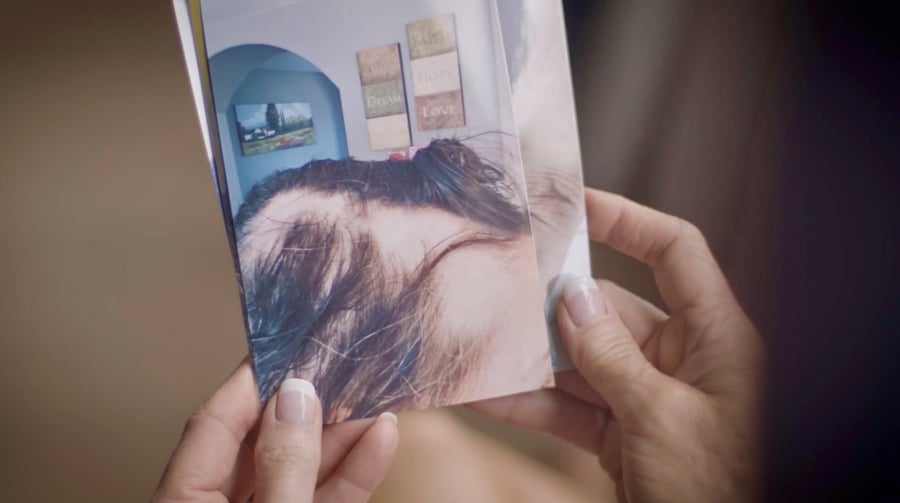
Alopecia Affects Daily Life
For Sally, alopecia’s impact on daily life extended far beyond the physical change of hair loss. It lowered her self-esteem, disrupted her social life, and even her personal relationships with close friends and family suffered.
“By 2020 I had absolutely no hair, and that made me become very introverted,” Sally explains. “I really distanced myself from the people who really loved and cared about me. It was so hard.”
Alopecia may deeply affect self-esteem. A once-confident person may struggle with a loss of identity and self-worth as they navigate the changes brought about by their changing appearance. Coping with these emotional effects can be as challenging as addressing the physical aspects of hair loss.
"It’s human nature to have vulnerabilities and self-doubt, no matter what circumstance you’re in. But for me, personally, when I lost my hair, I went into an absolute tailspin,” says Sally. “I doubted who I was, and how I felt about myself. I didn’t even want to look in the mirror.”
Alopecia Is Not Well-Understood
Despite its prevalence, alopecia remains a condition that is not widely understood, both within the medical community and among patients themselves. This lack of understanding often leaves people with alopecia feeling like they don’t have access to effective treatment plans which can compound the emotional challenges they face.
“Alopecia is an autoimmune disease that experts believe is triggered by an inflammatory response to your body,” says Sally. “But nobody knows enough about it to give you a guide to navigating the waters of what’s going to happen."
There’s currently no cure for alopecia and feeling alone in your diagnosis can feel very isolating, especially if you don’t know other people who are going through something similar.
Alopecia Coping Strategies
Positive Self-Image
Maintaining a positive self-image is crucial for individuals living with alopecia. While hair loss can undoubtedly challenge your self-esteem, it’s important to remember that beauty and confidence run deeper than your physical appearance.
Rethinking the concept of beauty and recognizing that it comes in diverse forms and is not solely defined by the presence or absence of hair is one way to boost your self-image. Embrace your unique features and qualities beyond your physical appearance.
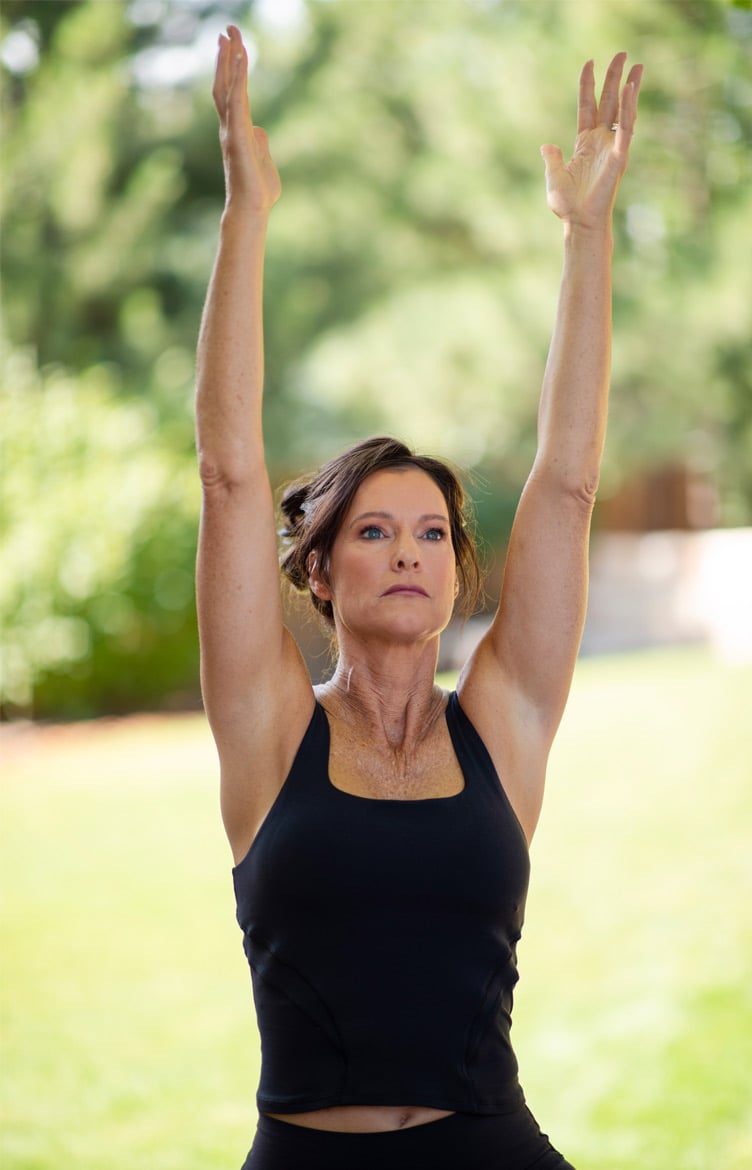
“I learned to have faith in myself and look inside of me for the strength I needed to pull through," explains Sally.
Being kind to yourself is also fundamental in this journey. Hair loss can be emotionally challenging, and it’s okay to have moments of insecurity or sadness. You don’t need to feel strong all the time and practicing self-compassion means acknowledging these feelings without judgment and allowing yourself to heal and grow.
Seek Support From Loved Ones
The role of friends and family in providing emotional support and understanding is so valuable for people navigating the challenges of alopecia. A helping hand or a shoulder to lean on can be a pillar of strength during the emotional ups and downs of this condition.
For Sally, her husband has played a significant role in her journey. “Luckily, I had my husband by my side and he was super supportive,” she shares. “He really helped me get through the worst parts of my alopecia.”
Having someone who not only understands but actively supports you in your moments of vulnerability can make the world of difference.
“I didn’t want to have a wedding without my hair looking its best,” Sally remembers. “And my husband fully supported me getting my first hair topper. He was my rock. I think it’s important for everybody to make sure they have that one person to lean on because they can help you get through this.”
Wigs and Hairpieces
High-quality human hair wigs can be transformative for people living with hair loss caused by alopecia. Sally recalls her total hair loss in 2020 after recovering from covid. “I can’t tell you how grateful I was to have my Follea wig because it got me through that trauma.”
While not everyone suffering from alopecia will choose to wear a wig (and that’s okay too!), the right wig or hairpiece can be empowering tools and allow people to feel confident and comfortable especially in social situations.
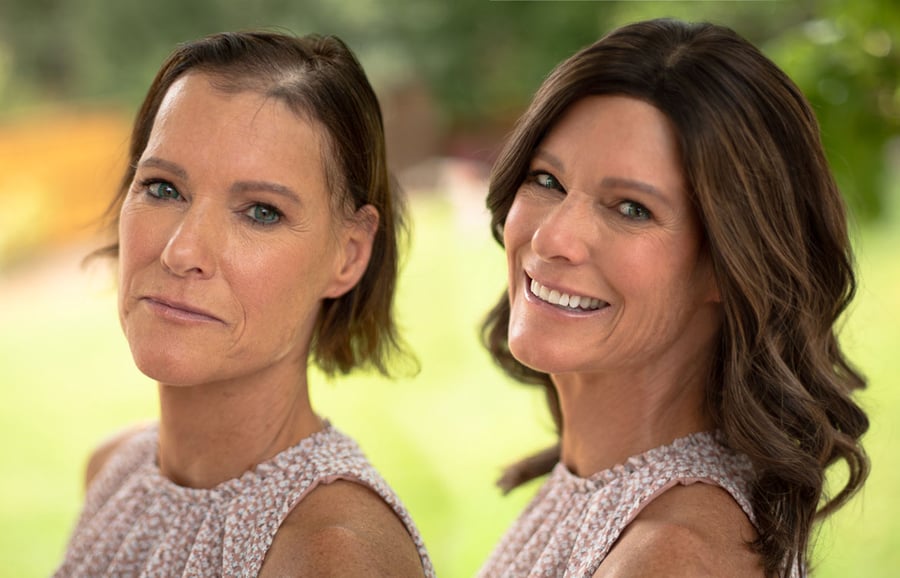
Admittedly, not all wigs are created equal, and the difference between a high-quality, natural-looking wig and a fake, unnatural one can have a profound impact on confidence, self-esteem, and overall well-being.
A well-crafted human hair wig that fits well and is secure on your head can be a game-changer. These wigs are designed to mimic the appearance and texture of a natural head of hair, right down to the finest details.
Over the years, Sally has come to appreciate the beauty and versatility that her wigs offer. “The silver lining I’ve discovered in the last 5 years is that I can have perfect hair,” she exclaims excitedly. “I can take my wig off the stand, put it on, and walk out with instant, perfect hair!”
Is a human hair wig the right choice for me?
Alopecia, whether due to genetics or autoimmune disease, can pose profound challenges to a sufferer's self-esteem and well-being.
Seeking support from loved ones, the importance of maintaining a positive self-image, and the transformative power of high-quality human hair wigs and hairpieces can all contribute to regaining your confidence and sense of self.
If you’d like to know more about the human hair wigs we make and sell here at Daniel Alain, we invite you to reach out and book a complimentary consultation with one of our experienced consultants. We know hair loss can be a difficult journey, but you’re not alone. We would be honored to guide you through the process of finding the perfect hairpiece for your situation.


.jpeg)
